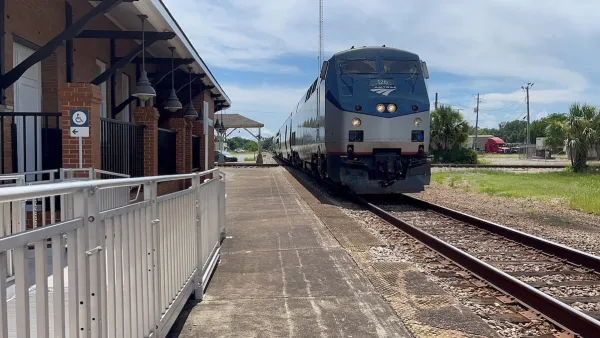Chris Haller parses the data in a recent report on Internet use for implications for how communities should manage their public outreach strategies.
The recent "Digital Differences" report from the Pew Internet Project contains a wealth of fascinating information on the ways in which different demographic segments of America's population access the internet. With a wealth of platforms used by community members to access the internet, a one-size-fits-all strategy for public outreach, such as simply developing a project website, may limit your potential pool of participants. As Haller notes, it is "important to consider other methods now gaining traction to
help you reach out to citizens in alternate ways to engage the citizens
of your community in the planning process."
Among some of the relevant findings on the report to consider when devising a public outreach plan:
- The rise of mobile is changing the story. Groups that have
traditionally been on the other side of the digital divide in basic
internet access are using wireless connections to go online.
- Email and search are today's most common Internet activities, but other
activities are becoming pervasive as well. Using social networking
sites, a pursuit once dominated by young adults, is now done by 65% of
Internet users- representing a majority of the total adult population. - The 27% of adults living with disability in the U.S. today are significantly less likely than adults without a disability to go online (54% vs. 81%).
- One in five American adults does not use the internet. Senior
citizens, those who prefer to take our interviews in Spanish rather than
English, adults with less than a high school education, and those
living in households earning less than $30,000 per year are the least
likely adults to have internet access.
FULL STORY: Digital Differences to Consider When Planning Your Public Outreach Strategy

Maui's Vacation Rental Debate Turns Ugly
Verbal attacks, misinformation campaigns and fistfights plague a high-stakes debate to convert thousands of vacation rentals into long-term housing.

Planetizen Federal Action Tracker
A weekly monitor of how Trump’s orders and actions are impacting planners and planning in America.

In Urban Planning, AI Prompting Could be the New Design Thinking
Creativity has long been key to great urban design. What if we see AI as our new creative partner?

Portland Raises Parking Fees to Pay for Street Maintenance
The city is struggling to bridge a massive budget gap at the Bureau of Transportation, which largely depleted its reserves during the Civd-19 pandemic.

Spokane Mayor Introduces Housing Reforms Package
Mayor Lisa Brown’s proposals include deferring or waiving some development fees to encourage more affordable housing development.

Houston Mayor Kills Another Bike Lane
The mayor rejected a proposed bike lane in the Montrose district in keeping with his pledge to maintain car lanes.
Urban Design for Planners 1: Software Tools
This six-course series explores essential urban design concepts using open source software and equips planners with the tools they need to participate fully in the urban design process.
Planning for Universal Design
Learn the tools for implementing Universal Design in planning regulations.
Gallatin County Department of Planning & Community Development
Heyer Gruel & Associates PA
JM Goldson LLC
City of Camden Redevelopment Agency
City of Astoria
Transportation Research & Education Center (TREC) at Portland State University
Jefferson Parish Government
Camden Redevelopment Agency
City of Claremont




























